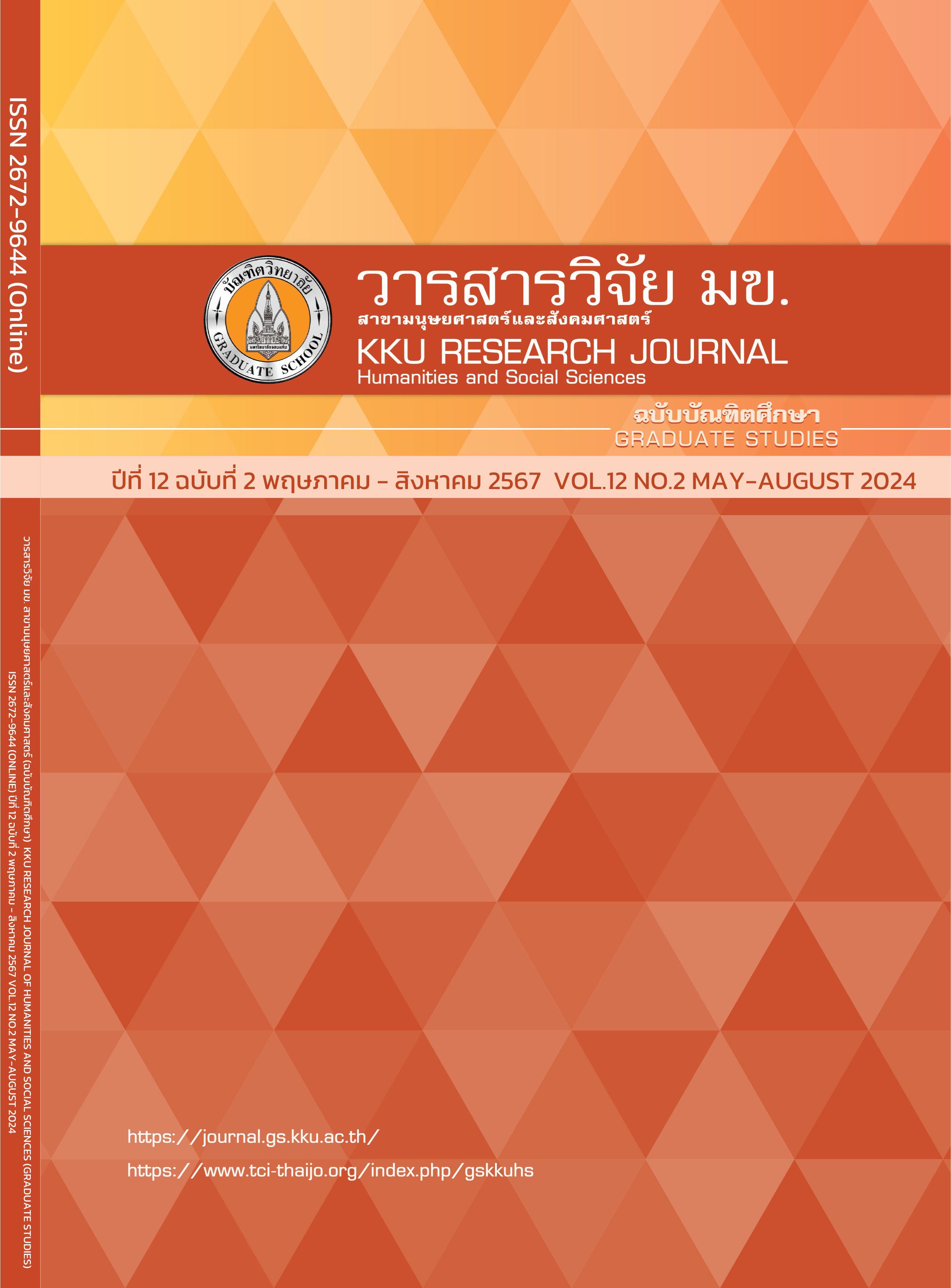The Effects of the Model-based Learning Instruction in the Topic of Pure Substance on Learning Achievement and Scientific Modeling Ability of Grade 7 Students at Nakorn Khonkaen School in Khonkaen Province
Keywords:
Model-based learning Instruction, Science learning achievement, Scientific modeling abilitiesAbstract
The purposes of this research were to 1) compare the learning achievement of grade 7 students after learning through the model-based learning instruction with those of students who learned through the inquiry-based learning instruction, 2) compare the scientific modeling abilities of grade 7 students who learned through the model-based learning and those of the students who learned through the inquiry-based learning instruction, and 3) compare the scientific modeling abilities of students before and after learning through the model-based learning instruction. The research sample consisted of 70 grade 7 students from two classrooms of Nakorn Khonkaen School in Khonkaen Province who studied in the academic year 2023. The research instruments were 1) 5 lesson plans based on the model-based learning instruction and the inquiry-based learning instruction in the topic of pure substance for 20 hours, 2) a learning achievement test in the topic of pure substance, and 3) a scientific modeling ability test. The statistics used for data analysis were mean, standard deviation, and t-test for dependent samples. The research findings showed that 1) the learning achievement of students after learning through the model-based learning instruction was higher than those of the students who learned through the inquiry-based learning instruction at the .05 level of statistical significance, 2) the scientific modeling abilities of the students who learned through the model-based learning instruction was higher than those of the students who learned through the inquiry-based learning instruction at the .05 level of statistical significance, and 3) the scientific modeling abilities of the students who learned through the model-based learning instruction was higher than their pre-learning counterpart ability at the .05 level of statistical significance.
References
Najang K. Effects of using model-centered instruction sequence on ability in making scientific model and concepts of laws of motion and types of motion of upper secondary school. [MA thesis]. Bangkok: Chulalongkorn University; 2011. Thai.
Boonrod J. Effects of science instruction using model on science learning achievement and scientific explanation ability of lower secondary school students. [MA thesis]. Bangkok: Chulalongkorn University; 2014. Thai.
Supatchaiyawong P. Using model-based learning for enhancing 10th grade student’s mental models of atomic structure and understanding the nature of models. [MA thesis]. Bangkok: Kasetsart University; 2013. Thai.
Katanrat N. A study of grade 11 students’ scientific concept and ability in making scientific model in electrochemistry by using model-centered instruction sequence. KKU Res J. 2015; 3(1): 82-92. Thai.
Pradubmuk P. Effect of model-based learning development concept and ability to create scientific weather models on grade 7 students. [MA thesis]. Pathum Thani: Valaya Alongkorn Rajabhat University; 2020. Thai.
Klainin S. Science education in Thailand : the development and dilemmas. 1st ed. The Institute for the Promotion of Teaching Science and Technology (IPST); 2012. Thai.
Kiatphimon N. Effects of using representation construction approach on modeling ability and learning achievement in biology of upper secondary school students. [MA thesis]. Bangkok: Chulalongkorn University; 2016. Thai.
Clement JJ, Rea-Ramirez MA. Model Based Learning and Instruction in Science (2). [n.p.]: Springer; 2010.
Coll RK, Campbell A. Student Views of Concept Mapping Use in Introductory Tertiary Biology Classes. Int J Sci Math Educ. 2006; 4(8): 641-668. https://doi.org/10.1007/s10763-005-9014-7
Coll R, Lajium D. Modeling and the Future of Science Learning. Springer Science. 2011; 6(6): 3-21.
https://doi.org/10.1007/978-94-007-0449-7_1
Gilbert J. (2004). Models and modelliIng in chemical education. Chemical Education: Towards Research-based Practice. 2004; 17(3): 47-68.
Johnson-Laird PN. Mental models in cognitive science. Cognitive Science.1980; 4(1): 71-115.
Downloads
Published
How to Cite
Issue
Section
License

This work is licensed under a Creative Commons Attribution-NonCommercial-NoDerivatives 4.0 International License.




